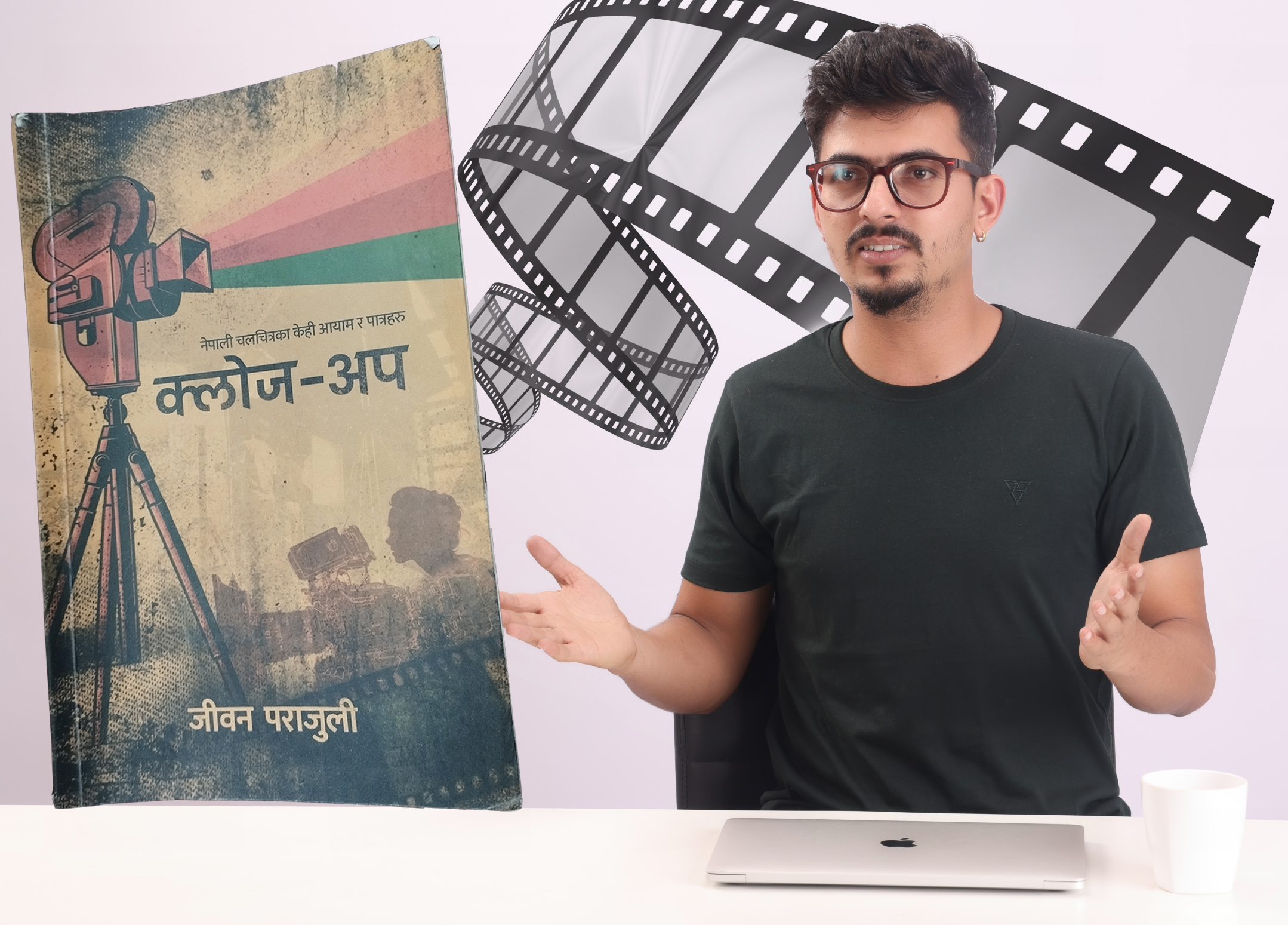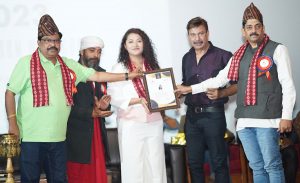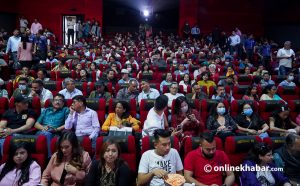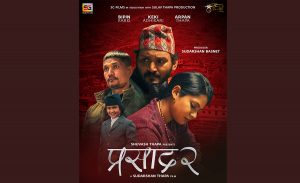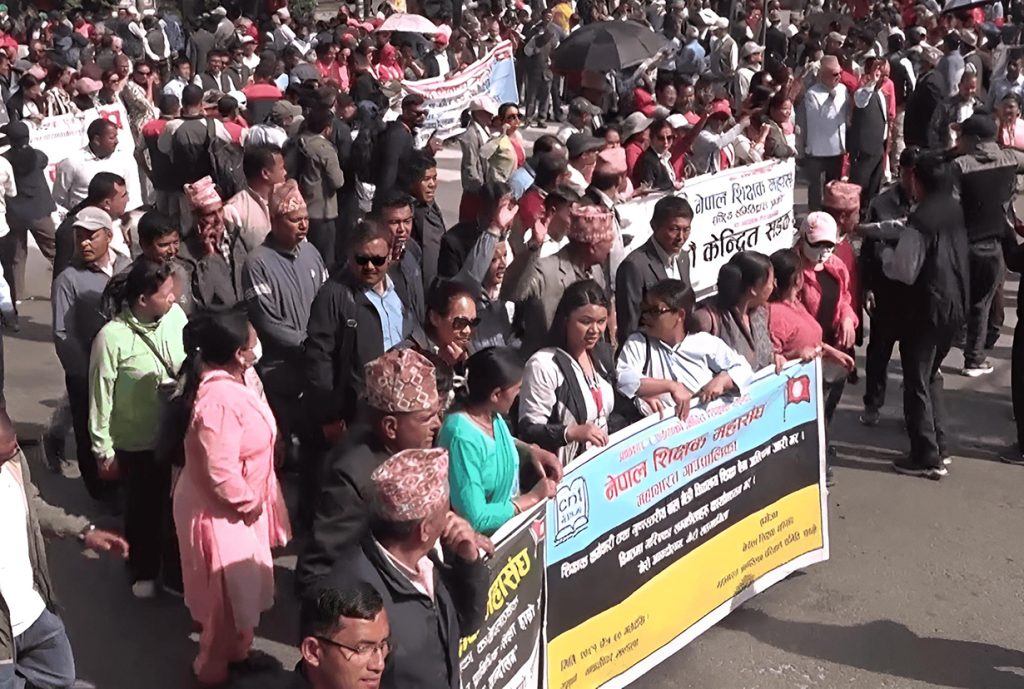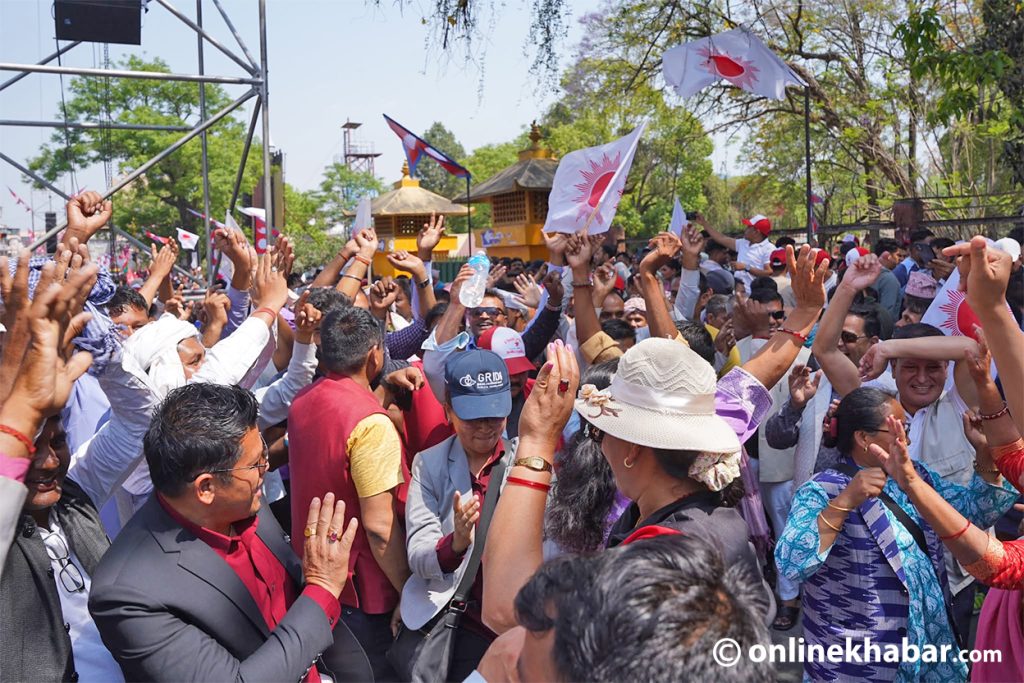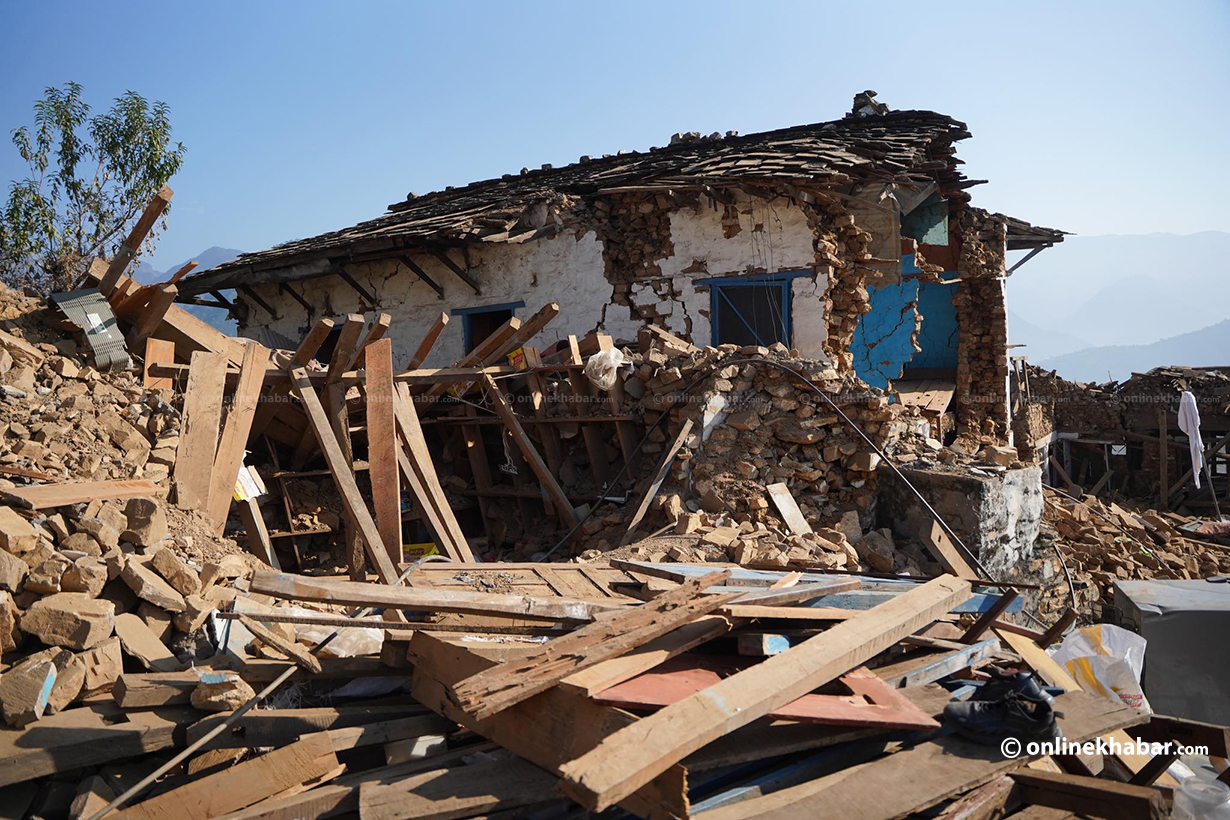Journalist Jiwan Parajuli closely looked into the Nepali film industry for the past 15 years. Still in the media, Parajuli last month, however, did something that most entertainment journalists in Nepal cannot imagine doing.
On March 19, 2022, Parajuli released a book, Close-up. In the book, Parajuli interviews 61 people related to the Nepali film industry and develops a story from each of them.
“Journalism is something I have been doing for a long time. This book is also journalism,” Parajuli says, “But, It has a different approach and form. It is more insightful and has in-depth information.”
Most often in Nepal, movies and pop culture fail to get the attention of scholars. Hence, the number of books that can help readers understand multiple dimensions of the industry is just a handful. Therefore, Parajuli hopes this can be a useful resource for understanding the past, present and future of the Nepali film industry.
Information matters

Parajuli says he wanted to write the book after realising there is a dearth of such books. “Somebody had to initiate something to overcome the scarcity. I did that job.”
Travelling to places and meeting people during his job, Parajuli says he faced many questions from where they could gain complete and insightful information on the development of the Nepali film industry.
“This book, to some extent, will quench their thirst,” says Parajuli. “They used to say how we would understand the Nepali cinema industry just by studying the books on Hollywood and Bollywood. This shall end now.”
While the Nepali film industry has always moved over the past several decades, people think the sector is rarely researched. According to Parajuli, there are a lot of things in the industry that needs to be explored but most people are reluctant to do it.
“Most of the people associated with this field do not have a habit of reading and researching. They want to be rich and popular overnight,” says Parajuli. “Consequently, people take this industry very lightly.”
He has found that there is no realisation among people about the importance of writing about such a topic. “People might have feated several challenges that they could face in the process.”
Parajuli says some veterans of the industry should have written such a book before his time. As they did not do, he says he came forward.
Series of challenges

To accomplish this, Parajuli says he faced a series of challenges. For example, it took him six months to set up an interview with Tripti Nadkar, an Indian-Nepali actor.
Some people who are featured in this book reside in one of the corners of India whereas some others in America as well. Yet, he was required to find the people from the earlier times who notably contributed to this industry.
“To gather them in one place is very troublesome, due to which, it took me three years to complete this book,” says Parajuli. “The interviews were done either virtually or physically.”
Parajuli says he solely depended on the interviews for the book while ensuring no information is false there. Achieving that truth was quite challenging, but he says tricky questions helped him.
“Some of them even asked me to not include things they have said, but I somehow convinced them,” says Parajuli. “I avoided all the off-the-record deals even at the cost of the future of our relationships.”
Picking up the people

Before Parajuli selected the people to interview, he finalised the chapters that he wanted to write and selected the people accordingly.
“For instance, there is a chapter on the history of the Nepali film industry. For this part, I researched about people who could inform me about it,” says Parajuli. “I found Yadav Kharel and the late Chetan Karki would be the appropriate person for it.”
He also tried to add some other people to this chapter, but they were reluctant to speak. Likewise, some others were out of reach.
There is one particular chapter on the contribution of the people residing across the border to the Nepali film industry. He has stories from Tulshi Ghimire to Pushpan Pradhan.
“Then, I designed a separate chapter on Rajesh Hamal and searched for people that are closely related to him.”
In this chapter, the book features Karishma Manandar, Rajendra Salav, Daya Ram Dahal and Narayan Puri.
Dahal has worked with Hamal in 25 movies whereas Manandar and Hamal were very close once and have worked together in over 50 movies. Puri is the person who composed Hamal’s one of the most popular dialogues, ‘Shankar Hu Ma Shankar’ [Shankar… I am Shankar] and Salav has made four movies altogether and two of them feature Hamal.
Besides Hamal, actor Bhuwan KC has also been prominent in the book as he has been the centre of controversies throughout his career.
While there is an entire chapter on film journalism, a more important chapter that follows is about women in the Nepali film industry, beginning with Nepal’s first female director Suchitra Shrestha.
Apparently, the Nepali film industry has very few female directors, and Parajuli has attempted to find the reason behind it.
“These chapters designed are the results of my curiosity. For example, I wanted to know the history of the Nepali film industry but could not find proper references that would help me,” says Parajuli.
The author also admits there are still many things that are left to cover about the Nepali film industry as a single book cannot cover all of them.
“Besides, I now realise I forgot to feature some key persons from the industry. Probably, its sequel will cover the remaining ones.”
He says, “But, I will be happier even if someone does that before me.”
An eye-opener

Parajuli says writing this book has profoundly changed his perception of Nepali movies.
There are so many ups and downs in the Nepali cinema industry but have been unnoticed all the time. Many of those things are mentioned in the book, he says.
While writing this book Parajuli also has found many other facts that have encouraged him to write in the coming days as well.
Parajuli labels the status of the Nepali film industry pitiful. He has found that the way of applying censorship in Nepali cinemas is still the same as it used to be during the time when kings used to rule the country.
“The process of censorship must change the scenario of the Nepali movie industry,” he says.
Similarly, he says, “The government’s way of behaving with the Nepali film industry hasn’t changed yet. It is still similar as it used to be during the monarchy.”
According to Parajuli, the other reason why the Nepali film industry is not developing notably is the filmmakers have not stopped copying stories from other international industries.
“While earlier Nepali movies used to copy movies from Indians, the trend has changed now. There are European movies too,” he says
Unless this situation changes, the Nepali cinema industry will fail to progress, he adds.



